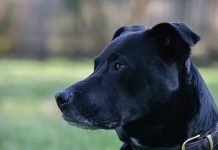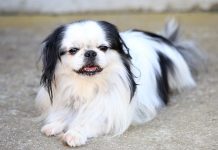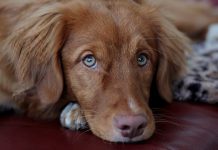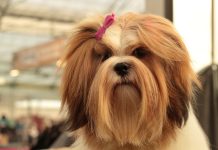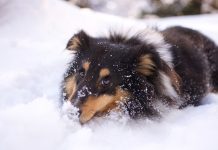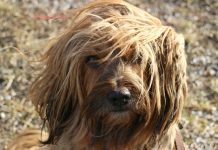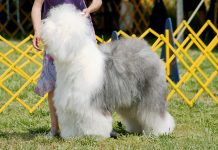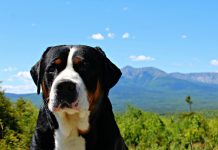History and Origins of the French Bulldog Breed:

The French Bulldog, often affectionately referred to as the “Frenchie,” has a fascinating history that traces back to the early 19th century in France. This breed was developed as a companion dog, particularly favored by lace workers in Nottingham, England, who migrated to France during the Industrial Revolution.
The English Bulldog was crossed with various smaller breeds, including local French ratters, to create a smaller, more compact version suitable for indoor living. The result was the French Bulldog, cherished for its charming personality, affectionate nature, and distinctive appearance.
By the late 19th century, French Bulldogs gained popularity in Parisian society, becoming fashionable companions among artists, writers, and wealthy families. They were recognized by the American Kennel Club (AKC) in 1898 and quickly gained a devoted following in the United States.
Today, the French Bulldog remains a beloved breed known for its playful disposition, adaptability, and unique physical features. They are one of the most popular companion dogs worldwide, cherished for their loyalty and affectionate demeanor.
Physical Characteristics and Appearance of French Bulldogs:
French Bulldogs are characterized by their distinctive appearance, which combines a muscular build with a compact frame and expressive features. Here are key physical characteristics and appearance traits of French Bulldogs:
- Size and Build: French Bulldogs are a small to medium-sized breed, typically weighing between 16 to 28 pounds (7.3 to 12.7 kg) and standing 11 to 12 inches (28 to 30 cm) tall at the shoulder. They have a sturdy and muscular build with a well-proportioned body.
- Head and Face: French Bulldogs have a distinctive square-shaped head with prominent, bat-like ears that stand erect. They have a short, broad muzzle with loose, wrinkled skin and a pronounced stop between the eyes.
- Coat and Color: French Bulldogs have a short, smooth coat that comes in a variety of colors, including brindle, fawn, white, cream, and pied (a combination of white with any other color). Their coat is low-maintenance and requires minimal grooming.
- Expression and Eyes: French Bulldogs have large, round, dark eyes that convey a sweet and expressive expression. Their eyes are set wide apart and slightly prominent, giving them a distinctive look.
- Neck and Body: French Bulldogs have a short, thick neck that leads to a compact and well-muscled body. They have a deep chest, broad shoulders, and a slightly arched back.
- Tail and Hindquarters: French Bulldogs have a short, straight tail that is either straight or screwed. Their hindquarters are well-muscled and sturdy, giving them a balanced and agile appearance.
- Gait: French Bulldogs have a smooth and easy gait, reflecting their muscular build and balanced structure. They move with a characteristic rolling motion, exhibiting grace and agility despite their compact size.
- Temperament: French Bulldogs are known for their affectionate and playful nature. They are friendly, sociable, and adaptable dogs that form strong bonds with their families.
Overall, French Bulldogs are a delightful breed cherished for their unique appearance, loving demeanor, and adaptable nature. Their distinctive features and endearing personality make them popular companions for individuals, families, and urban dwellers alike. Regular exercise, proper care, and companionship contribute to their happiness and well-being as beloved family members.
French Bulldog Temperament and Personality Traits:
French Bulldogs are beloved for their charming personalities and affectionate nature. Understanding their temperament and personality traits is essential for providing them with appropriate care and training:
- Affectionate: French Bulldogs are incredibly affectionate and thrive on companionship. They form strong bonds with their families and enjoy being close to their owners.
- Friendly: Frenchies are sociable dogs that get along well with people of all ages, including children. They are generally friendly and outgoing, making them excellent family pets.
- Loyal: French Bulldogs are devoted to their families and often develop a deep loyalty to their owners. They enjoy spending time with their loved ones and are happiest when by their side.
- Playful: Despite their laid-back demeanor, French Bulldogs have a playful side. They enjoy interactive games and toys, especially those that involve human interaction.
- Adaptable: Frenchies are adaptable dogs that can thrive in various living situations, including apartments and family homes. They are well-suited for urban environments due to their moderate exercise needs.
- Relaxed: French Bulldogs have a calm and easygoing nature. They are content to lounge around the house but also enjoy short bursts of activity.
- Alert: While not known for excessive barking, French Bulldogs are alert and will alert their owners to any unusual activity or visitors.
- Stubborn: French Bulldogs can be a bit stubborn, which can make training challenging at times. Positive reinforcement techniques and patience are key to successful training.
- Good-natured: Frenchies have a good-natured disposition and are generally tolerant of other pets and animals. Proper socialization from an early age helps them develop good manners.
- Low Energy Level: French Bulldogs have a relatively low energy level compared to some other breeds. They require daily exercise but are not hyperactive dogs.
Training and Socialization Needs for French Bulldogs:
French Bulldogs benefit from early training and socialization to become well-adjusted and well-behaved companions. Here are key training and socialization needs for French Bulldogs:
- Positive Reinforcement: Use positive reinforcement techniques such as treats, praise, and play to motivate and reward your French Bulldog during training sessions. Avoid harsh corrections or punishment, as this can undermine their trust and confidence.
- Basic Obedience: Teach basic commands such as sit, stay, come, and leave it. Consistent training sessions in short intervals are effective for French Bulldogs.
- Socialization: Expose your French Bulldog to various social situations, including interactions with people of different ages, other dogs, and pets. Early socialization helps prevent shyness or aggression towards unfamiliar individuals or animals.
- Leash Training: French Bulldogs should be trained to walk politely on a leash. Use positive reinforcement to encourage loose leash walking and prevent pulling.
- House Training: French Bulldogs are intelligent dogs that respond well to consistent house training. Establish a routine and provide frequent opportunities for bathroom breaks.
- Patience and Consistency: French Bulldogs can be stubborn, so patience and consistency are essential in training. Keep training sessions short and enjoyable to keep your Frenchie engaged.
- Early Exposure: Introduce your French Bulldog to different environments, sounds, and experiences from a young age to build confidence and prevent fearfulness.
By providing positive training methods, early socialization, and patient guidance, you can help your French Bulldog develop into a well-mannered and obedient companion. Remember to make training sessions fun and rewarding to keep your Frenchie motivated and eager to learn. With proper care and attention, French Bulldogs thrive as loving and loyal family members.
Health Considerations and Common Issues in French Bulldogs:
French Bulldogs, like many brachycephalic (short-faced) breeds, are prone to certain health issues due to their unique anatomy. Understanding these common health considerations is crucial for providing optimal care and early intervention when needed:
- Brachycephalic Airway Syndrome (BAS): French Bulldogs have flat faces and narrow airways, making them susceptible to respiratory issues. BAS can include stenotic nares (narrow nostrils), elongated soft palate, and tracheal collapse, leading to breathing difficulties, snoring, and exercise intolerance.
- Heat Sensitivity: French Bulldogs are sensitive to heat and humidity due to their compromised respiratory system. They are prone to heatstroke and should be kept cool and hydrated during hot weather.
- Skin Fold Dermatitis: The loose skin folds around a French Bulldog’s face, nose, and tail can trap moisture and debris, leading to skin fold dermatitis. Regular cleaning and drying of skin folds is essential to prevent infections.
- Allergies: French Bulldogs may suffer from skin allergies, food sensitivities, or environmental allergies (e.g., pollen, dust mites). Symptoms include itching, redness, and skin infections. Identifying and avoiding allergens is important for managing allergic reactions.
- Eye Problems: French Bulldogs are prone to eye issues such as cherry eye (prolapsed gland of the third eyelid), corneal ulcers, and dry eye (keratoconjunctivitis sicca). Regular eye exams and proper eye care are essential to maintain ocular health.
- Hip Dysplasia: Although less common than in larger breeds, French Bulldogs can develop hip dysplasia, a genetic condition that affects the hip joints and can lead to pain and mobility issues.
- Intervertebral Disc Disease (IVDD): French Bulldogs are at risk of IVDD, a condition affecting the spinal discs, particularly in the neck and back. Symptoms may include neck or back pain, difficulty walking, or paralysis.
- Obesity: French Bulldogs have a tendency to gain weight if overfed or under-exercised. Obesity exacerbates existing health issues and increases the risk of joint problems.
- Dental Problems: French Bulldogs are prone to dental issues such as periodontal disease, tooth decay, and malformed teeth due to their brachycephalic anatomy. Regular dental care, including brushing and professional cleanings, is important for oral health.
- Reproductive Issues: Due to their compact build, many French Bulldogs require assistance with mating and whelping. Breeding should only be done responsibly under the guidance of a veterinarian.
Living with a French Bulldog: Suitable Environments and Lifestyle Considerations:

French Bulldogs are adaptable and affectionate companions that thrive in loving homes. Consider the following factors when living with a French Bulldog to ensure their health and happiness:
- Indoor Living: French Bulldogs are indoor dogs and should have access to a climate-controlled environment, especially during hot or cold weather. They are well-suited for apartment living but require regular exercise.
- Moderate Exercise: French Bulldogs have moderate exercise needs and enjoy daily walks and play sessions. Avoid strenuous exercise in hot weather to prevent heat-related issues.
- Temperature Control: Due to their heat sensitivity, French Bulldogs should be kept cool during warm weather. Provide shade, air conditioning, and access to fresh water to prevent overheating.
- Regular Grooming: French Bulldogs have a short coat that requires minimal grooming. However, regular cleaning of skin folds, ears, and eyes is important to prevent infections and maintain hygiene.
- Socialization: French Bulldogs are social dogs that enjoy spending time with their families. Proper socialization from an early age helps prevent shyness or fearfulness.
- Veterinary Care: Schedule regular veterinary check-ups, vaccinations, and preventive care to monitor your French Bulldog’s health and address any issues promptly.
- Diet and Nutrition: Feed your French Bulldog a balanced diet appropriate for their age, weight, and activity level. Avoid overfeeding to prevent obesity and associated health problems.
- Safety Precautions: French Bulldogs are curious and may investigate potential hazards. Keep toxic substances, small objects, and choking hazards out of their reach.
- Companionship: French Bulldogs thrive on human companionship and should not be left alone for long periods. Ensure they receive plenty of attention, interaction, and affection to keep them happy.
By providing a safe, loving, and enriching environment, you can ensure that your French Bulldog enjoys a healthy and fulfilling life as a cherished member of your family. Stay vigilant for any signs of health issues and consult your veterinarian for personalized care recommendations. With proper care and attention, French Bulldogs bring joy and companionship to their owners for many years.
French Bulldog Variations and Breeding Practices
French Bulldogs, known for their charming personalities and distinctive appearance, have specific breed standards that reputable breeders adhere to when selecting breeding pairs. While French Bulldogs are recognized for their unique characteristics, variations within the breed can occur based on color and coat patterns. Here are some insights into French Bulldog variations and responsible breeding practices:
Variations within the French Bulldog Breed:
Coat Colors: French Bulldogs come in a variety of coat colors, including brindle, fawn, pied (white with patches of other colors), cream, and variations of these colors. Reputable breeders strive to maintain breed standards and avoid breeding for rare or non-standard colors that may be associated with health issues.
Coat Patterns: French Bulldogs may exhibit different coat patterns, such as brindle (striped), piebald (patches of white and another color), solid, or a combination of colors. Each pattern is unique and contributes to the breed’s distinctive appearance.
Markings: French Bulldogs may have various markings, including black masks, white markings on the chest or face, or other color patterns that enhance their overall look. Breeders focus on preserving desirable markings while adhering to breed standards.
Size and Build: While French Bulldogs generally have a standard size and build, variations in body structure and proportions can occur. Responsible breeders aim to produce French Bulldogs with a balanced and proportionate physique, avoiding extremes that may compromise the breed’s health or mobility.
Responsible Breeding Practices for French Bulldogs:
Health Screening: Reputable breeders prioritize health screening for genetic disorders common in French Bulldogs, such as brachycephalic airway syndrome (BAS), hip dysplasia, patellar luxation, and congenital heart conditions. Health testing helps identify potential risks and ensures the overall health of breeding dogs and their offspring.
Selection of Breeding Pairs: Responsible breeders carefully select breeding pairs based on health, temperament, conformation to breed standards, and genetic diversity. They avoid breeding dogs with known health issues or undesirable traits to produce healthy and well-rounded puppies.
Ethical Practices: Reputable breeders adhere to ethical breeding practices, including limiting the frequency of breeding, providing proper care and socialization for puppies, and prioritizing the health and well-being of their dogs over financial gain.
Pedigree and Lineage: Responsible breeders maintain detailed records of pedigree and lineage to track genetic history and identify desirable traits within breeding lines. They aim to improve the breed while preserving its unique characteristics.
Education and Improvement: Ethical breeders stay informed about advancements in breeding practices, health screening techniques, and genetic diversity. They actively participate in breed clubs, seminars, and educational programs to enhance their knowledge and skills.
Lifetime Support: Reputable breeders provide ongoing support and guidance to puppy buyers, including information on training, health care, and responsible ownership. They remain available to address any concerns or questions throughout the dog’s life.
Breeding for the Betterment of the Breed: Responsible breeders have a genuine passion for the breed and strive to contribute positively to its preservation and improvement. They prioritize the long-term health and welfare of French Bulldogs and advocate for responsible breeding practices within the community.
By following responsible breeding practices and focusing on health, temperament, and adherence to breed standards, reputable French Bulldog breeders contribute to the overall well-being and sustainability of this beloved breed. Prospective French Bulldog owners should seek out breeders who demonstrate a commitment to the breed’s health and integrity through ethical breeding practices.
50 Best Names with Meanings for French Bulldogs
Choosing the perfect name for your French Bulldog can be exciting and meaningful. Here are 50 great names along with their meanings that suit the personality and charm of French Bulldogs:
- Gigi – Short for “Giselle,” meaning pledge or oath.
- Hugo – A name of German origin meaning “bright in mind and spirit.”
- Coco – Inspired by the famous fashion designer Coco Chanel.
- Louie – A stylish name meaning “renowned warrior.”
- Bella – Italian for “beautiful,” perfect for a lovely French Bulldog.
- Oscar – Meaning “divine strength” or “God’s spear.”
- Luna – Latin for “moon,” symbolizing serenity and beauty.
- Leo – Short for “Leonardo,” meaning “lion-hearted” and brave.
- Mia – A sweet name of Italian origin meaning “mine” or “beloved.”
- Max – Short for “Maximilian,” signifying “the greatest.”
- Lola – A charming and playful name meaning “sorrow” or “lady of sorrows.”
- Milo – Of German origin, meaning “gracious” or “soldier.”
- Zoe – Greek for “life,” reflecting vitality and energy.
- Dexter – Latin for “right-handed” or “skilled,” ideal for a clever Frenchie.
- Stella – Latin for “star,” representing brightness and radiance.
- Louise – A classic name meaning “renowned warrior.”
- Otis – Derived from Old German, meaning “wealth” or “prosperity.”
- Daisy – Symbolizing freshness, innocence, and cheerfulness.
- Gus – Short for “Augustus,” meaning “great” or “venerable.”
- Ruby – A gemstone name, perfect for a precious French Bulldog.
- Pablo – Inspired by the famous artist Pablo Picasso.
- Millie – Of German origin, meaning “strength” or “determination.”
- Hazel – Named after the hazel tree, symbolizing wisdom and protection.
- Archie – A spirited name meaning “genuine” and “bold.”
- Lola – A lively and charming name for a playful Frenchie.
- Bruno – A classic name meaning “brown-haired” or “shield.”
- Sophie – Greek for “wisdom,” reflecting intelligence and grace.
- Rocky – Symbolizing strength and resilience.
- Ivy – A symbol of fidelity, friendship, and eternal life.
- Frankie – Short for “Francis” or “Franklin,” meaning “free man.”
- Mabel – A vintage name meaning “lovable” and “amiable.”
- Winston – Old English for “joy stone,” signifying happiness.
- Pearl – A gemstone name representing purity and elegance.
- Olive – Named after the olive tree, symbolizing peace and abundance.
- Lou – Short and sweet, meaning “famous warrior.”
- Teddy – Soft and cuddly, like a favorite teddy bear.
- Piper – A charming name meaning “flute player” or “pipe player.”
- Rocco – Strong and tough, perfect for a spirited French Bulldog.
- Gizmo – Playful and curious, like the beloved movie character.
- Pixie – Reflects their small size and mischievous nature.
- Winnie – Short for “Winifred,” meaning “blessed peacemaking.”
- Harvey – Derived from Old English, meaning “battle-worthy.”
- Minnie – A diminutive of “Mary,” symbolizing innocence and purity.
- Finn – Of Irish origin, meaning “fair” or “white.”
- Nala – Swahili for “gift,” representing gratitude and blessing.
- Toby – A lively name meaning “God is good.”
- Mochi – Japanese for “rice cake,” symbolizing sweetness and charm.
- Benny – Short for “Benjamin,” meaning “son of the right hand.”
- Rosie – Represents warmth, love, and affection.
- Winston – A strong and distinguished name, reflecting leadership and courage.
Choose a name that resonates with your French Bulldog’s personality, appearance, or the meaning behind the name. Whether you prefer classic, trendy, or unique names, each of these options is sure to complement your Frenchie’s delightful character and become a beloved part of your family.

In conclusion, this complete guide to French Bulldog dogs has provided a comprehensive overview of this popular and delightful breed. Throughout our exploration, we’ve delved into the rich history, distinctive characteristics, and essential care considerations that define French Bulldogs. Known for their charming personalities, affectionate nature, and unique appearance, French Bulldogs have captured the hearts of dog lovers worldwide. They make wonderful companions for families and individuals alike, thriving in indoor settings and enjoying quality time with their human companions. As you embark on your journey with a French Bulldog, may you appreciate their special qualities and form a lasting bond filled with love, companionship, and happiness with this lovable breed.







